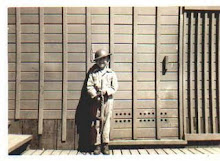Shoe giveaway hushed and publicized
A gift of more than 5,000 shoes to World Vision US was somewhat clouded in mystery last week.
There was no doubt that Kissimmee police were the donor, but they refused to identify the shoe brand and told reporters not to photograph them at a news conference to publicize the good deed.
The problem, according to OrlandoSentinel.com, was that the shoes were counterfeit Nikes, and the company was touchy about how they would be donated. Nike decided to allow the donation — as long as the shoes weren’t distributed in the United States. And that police wouldn’t acknowledge they were Nike knockoffs.
But it’s a hard secret to keep when there are federal court records detailing the case and reporters could see police and FBI agents loading the shoes into a semi.
“Well, it’s going to ruin us donating anything more,” Kissimmee police spokeswoman Stacie Miller said when told the bogus shoes would be identified in a news article. Counterfeit products usually are destroyed when a case ends.
Incidentally, the shoes cost taxpayers more than $10,000 to store for more than a year as evidence in a criminal case.
There was no doubt that Kissimmee police were the donor, but they refused to identify the shoe brand and told reporters not to photograph them at a news conference to publicize the good deed.
The problem, according to OrlandoSentinel.com, was that the shoes were counterfeit Nikes, and the company was touchy about how they would be donated. Nike decided to allow the donation — as long as the shoes weren’t distributed in the United States. And that police wouldn’t acknowledge they were Nike knockoffs.
But it’s a hard secret to keep when there are federal court records detailing the case and reporters could see police and FBI agents loading the shoes into a semi.
“Well, it’s going to ruin us donating anything more,” Kissimmee police spokeswoman Stacie Miller said when told the bogus shoes would be identified in a news article. Counterfeit products usually are destroyed when a case ends.
Incidentally, the shoes cost taxpayers more than $10,000 to store for more than a year as evidence in a criminal case.









No comments:
Post a Comment